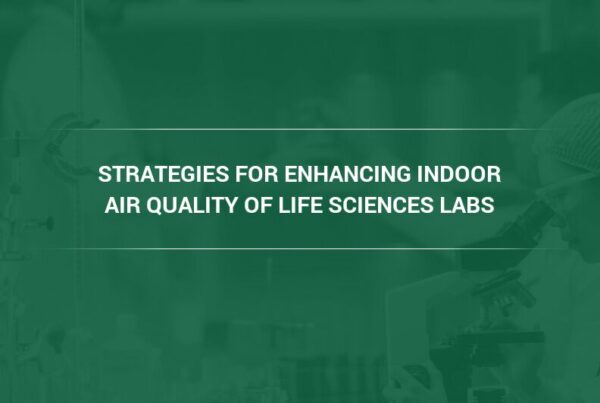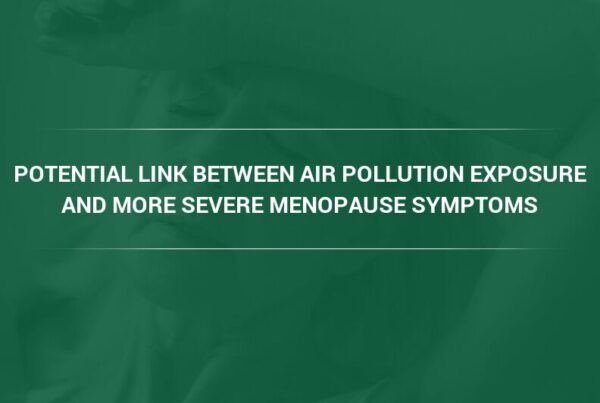Learn why the indoor air quality in cruise ships is dangerous to human health, and find out how commercial air filtration systems could fix the issue.
Maritime Industry News – According to an undercover report released on January 24, 2019, cruise ships produce significant amounts of air pollution, so much so that they could endanger the health and safety of passengers and crew. If anything, this highlights the need for cruise ships to have commercial air filtration systems that purify the air in common areas and cabins inside the ship.
Why Air Quality on Cruise Ships Is So Bad
The report, titled “An investigation of air pollution on the decks of 4 cruise ships,” also brought attention to the effect that air pollution from cruise ships have on communities near ports. (1)
Over a two-year period, researchers monitored the air quality on the decks of four cruise ships, discovering that concentrations of particulate matter (PM) were comparable to the PM levels in countries with the worst air pollution, including Beijing, China and Santiago, Chile. It’s worth noting that in 2015, the Chilean government declared a state of environmental emergency after the air pollution in the capital city of Santiago reached dangerous levels. Likewise, the smog events in Beijing have prompted Chinese officials to finally take action against its air quality woes. (2)
According to Ryan Kennedy, an assistant professor at Johns Hopkins University Bloomberg School of Public Health and report’s co-authors, ship exhaust contains a toxic cocktail of airborne pollutants, including metal compounds and polycyclic aromatic hydrocarbons, many of which contain cancer-causing properties.
“These airborne pollutants are dangerous to human health, to say the least,” notes Camfil USA’s Charlie Seyffer, Manager of Marketing & Technical Materials for commercial air filters and 37-year ASHRAE member and active committee participant. “The worst offender is perhaps fine particulate matter, which is small and light enough to stay suspended in the air for hours, increasing their likelihood of being inhaled.”
What Indoor Air Quality in the Four Cruise Ships is Like
Kennedy and his fellow researchers took air quality measurements on the decks of the Carnival Liberty, which sails from Florida to the Bahamas; Carnival Freedom, which sails from Texas to the Caribbean; Holland America MS Amsterdam, which sails from Vancouver to Los Angeles; and Princess Cruises Emerald Princess, which sails from Los Angeles to Mexico. All four ships were found to have produced high concentrations of fine PM, which can easily affect indoor air quality inside the ships.
Without informing Carnival Corp. or each of the ships’ crew, Kennedy and his team took air quality measurements using a P-TRAK Ultrafine Particle Counter while each ship was at port and moving at sea. Unsurprisingly, the highest PM concentrations were consistently found behind the smokestack at the rear of the ship. The types of particulate matter found ranged between 0.02 and 1.0 microns in diameter—known as ultrafine and fine PM.
“Below PM2.5, particles are more harmful because they penetrate deeper into the lung alveoli,” Seyffer points out. “They cross blood vessels walls and can diffuse into the blood circulation to reach and affect organ function.”
Use of Dirty Heavy Oil Demands Use of HEPA Air Filtration Systems
According to Kendra Ulrich, senior shipping campaigner at Stand.earth, an international environmental organization that commissioned the report, Kennedy’s findings on board were shocking. The findings are especially concerning as the stern area, or the back of the ship, is often where running tracks, swimming pools, or outdoor lounge areas are located, which means that passengers in these areas could very well be inhaling all the pollution while engaging in leisure activities. As to why the four cruise ships are particularly polluting, Ulrich points to the fact that Carnival Corp. uses heavy fuel oil, an unrefined fuel long criticized for being high in sulfur. Not surprisingly, some homes and buildings on the fenceline of shipping channels have had to turn to high efficiency air filtration systems to protect their occupants from air pollution.
Fortunately, the global maritime industry is cognizant of the environmental and health impact of burning fuel oil, particularly bunker fuel. Beginning January 1, 2020, the International Maritime Organization (IMO) will require all fuels used in ships to have no more than 0.5 percent sulfur—a significant reduction from the current standard of 3.5 percent and well below the industry average of 2.7 percent sulfur content.
According to public health experts, the 2020 sulfur cap should prevent an estimated 150,000 premature deaths and 7.6 million cases of childhood asthma around the world each year.
Cruise Ships Are Not the Only Reason to Install Commercial High Efficiency Air Filters
According to Megan King, a spokesperson for the Cruise Lines International Association, the cruise industry plays just a small part in the problem of maritime air pollution. She points to container shipping, as well as other types of tourism, as contributing factors to marine air pollution. If anything, this only bolsters the need to install commercial high efficiency air filters in maritime facilities and ships.
King also pointed out that the international cruise industry has already invested $1 billion in cleaner fuels and new technologies to reduce the air pollution emissions of cruise ships.
On the other hand, Carnival Corp. asserted that its cruises are coordinated with national and international regulatory agencies such as the United States Environmental Protection Agency (EPA) to ensure the safety of guests and crew, and that tests of the company’s emissions meet or exceed all regulatory requirements.
Why PM Pollution Requires Installation of Commercial HEPA Filter Air Purifiers
This is only the latest report adding to the growing body of literature discussing the damaging health effects of PM. The good news is that solutions like commercial HEPA filter air purifiers are capable of capturing particles, including ultrafines, from inside indoor spaces. These systems, however, don’t address the actual source of PM.
Kennedy points out that ultrafine particles are particularly dangerous because they are small enough to interact with the human body’s cells, which can have adverse health outcomes if the particles contain something toxic, like lead, metal compounds or other cancer-causing particulate. And while anyone can be affected by PM pollution, individuals with existing health conditions, such as asthma and cardiovascular disease, are most at risk of suffering serious illness.
PM consists of microscopic solid particles and liquid droplets light enough to stay suspended in the air. While some particles can settle to solid surfaces, the majority will stay in the air for hours, increasing their likelihood of being inhaled. When this happens, PM can damage the heart and lungs—this is especially true for fine PM1 or PM2.5.
Work with Reliable Industrial Air Filter Manufacturers and Distributors
If you are considering installing commercial air filter systems in ships, port terminals, or maritime buildings, be sure to work with a reliable industrial air filter manufacturer or distributor that can help you figure out your immediate air quality needs and challenges.
For over 50 years, Camfil USA has manufactured commercial air filtration systems specifically designed to address the air quality issues of airports, commercial buildings, industrial facilities, and healthcare sites among others. For port buildings, we recommend MERV 13 particulate air filters in the central station HVAC systems or rooftop air handling systems for high-level protection against fine particulate matter. Carbon air filtration systems can then be used to address fumes from diesel and fuel oil, as well as odors, volatile organic compounds (VOCs), and exhaust associated with heavy equipment.
To learn more about our commercial air filtration systems for the maritime industry, get in touch with Camfil USA today.
Media Contact:
Lynne Laake
Camfil USA Air Filters
T: 888.599.6620
E: Lynne.Laake@camfil.com
F: Friend Camfil USA on Facebook
Y: Watch Camfil Videos on YouTube
Source:



